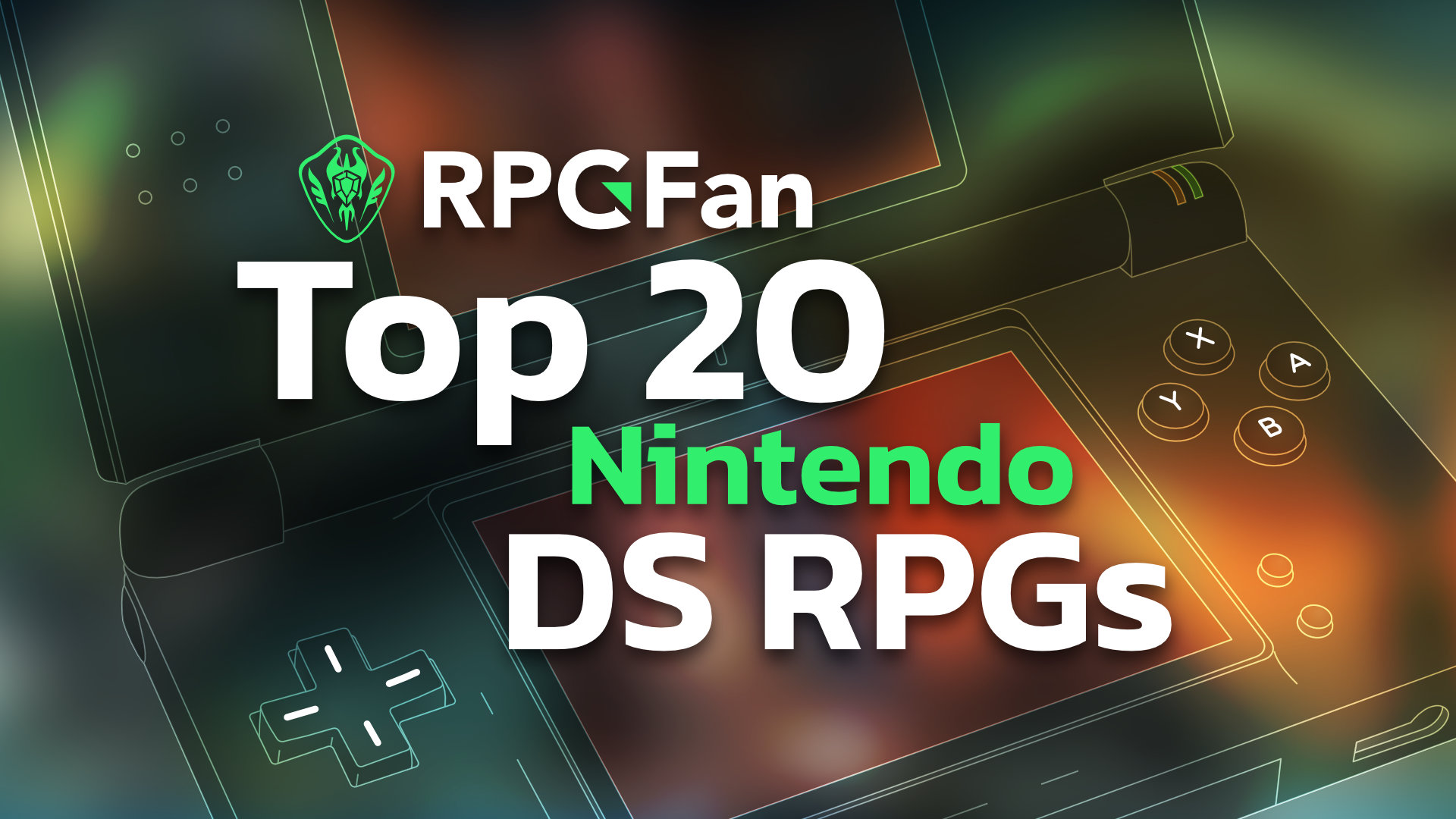Into every generation of consoles, some great games must fall, and on the DS, when it rained, it poured. In fact, the DS saw its cup of great games runneth over so immensely that we had 100 games on our initial list of those that we thought had a legitimate chance to make our top 20. We had to vote, debate, vote again, debate some more, and finally make a ruling that we’d only include one game from each franchise. Even then, the choices were mighty difficult, but the rule saved us from ending up with a list that included multiple Phoenix Wright, Professor Layton, and Pokémon games, among others.
The truly amazing thing is that when the system was released, people throughout the gaming industry were fairly skeptical about its chances of success. Who needs two screens? And what will people use them for? Will there ever be a developer who does more with the second screen than a minimap or an inventory? It is certainly true that when the system first arrived on the scene, many developers had a hard time thinking of good ways to use its capabilities (as you’ll see mentioned in connection with at least one of the games below). But after the initial awkward phase, there seemed to be no end to the possibilities offered by this great piece of hardware and its seemingly infinite battery life.
Thus, while there are plenty of DS games that are worthy of your time, here are the games that we consider the Top 20 Nintendo DS RPGs for Nintendo’s little two-screener that could.
20) Golden Sun: Dark Dawn
By Andrew Barker
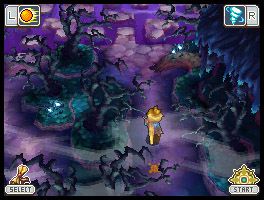
For many of us, Golden Sun: Dark Dawn was an exciting surprise. Golden Sun and Golden Sun: The Lost Age were two of the best RPGs for Game Boy Advance (and possibly on handhelds generally), so Dark Dawn had much to live up to on DS. Did it? Well, yes and no. It managed to retain the fantastic gameplay, psynergy powers and battle mechanics of the original games, though the story and characters had less depth this time around. That said, the design of the world and its dungeons are terrific and finding and collecting Djinn was fun all over again. It may not be perfect, but Dark Dawn is an awesome game that absolutely deserves its place on this list.
19) Final Fantasy Tactics A2: Grimoire of the Rift
By Luna Lee
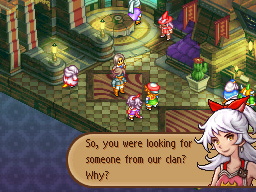
Final Fantasy Tactics A2 retains much of Final Fantasy Tactics‘ and FFTA‘s core gameplay, with some softened rules on law breaking. The story is forgettable at best, but who needs a story when you can change classes at the drop of a hat (and some clothes)? Smooth animations and vibrant color palettes form an appealing realm ripe for getting to higher ground and smacking enemies in the back. FFTA2‘s solid gameplay provides enough kick to sustain the dying hopes of a second Final Fantasy Tactics.
18) Mario & Luigi: Bowser’s Inside Story
By John Tucker
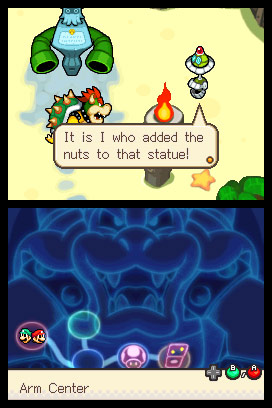
There are many good games involving Mario and/or Luigi, as well as quite a few not so good ones. The series that features them both in the title, though, has been essentially all good. And the best entry in that series so far came on the DS in the form of Bowser’s Inside Story. Every aspect of the game was outstanding, from the graphics to the music to the gameplay and beyond. It was a ton of fun playing as Bowser in the outside world, and it was just as much fun to play as Mario and Luigi inside Bowser’s belly and other assorted body parts. And the boss battles as giant Bowser were a great, unique feature that players enjoyed so much that they came back in 2013’s 3DS sequel. Bowser’s Inside Story is an excellent game, and well worthy of its inclusion in our list of the top 20 DS games.
17) Might & Magic: Clash of Heroes
By Patrick Gann
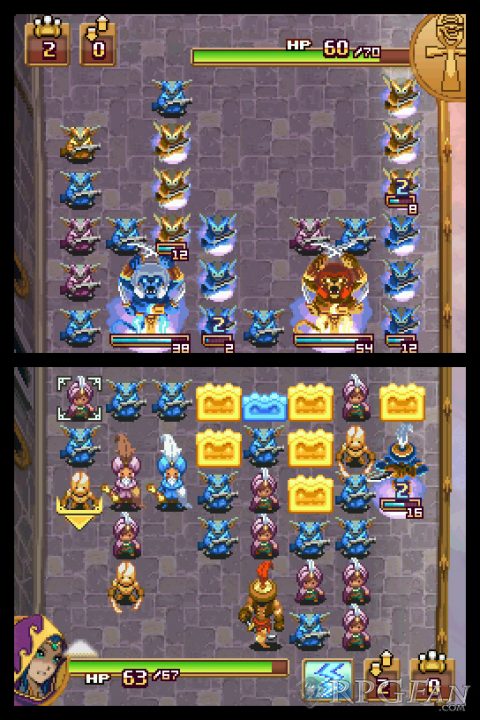
It’s easy for a long-running series of games to simply stand pat and repeat its formula over and over, and we’ve certainly seen many that do so. But every so often, we see developers who are willing to break the mold and do something completely different, and Might & Magic: Clash of Heroes is such a game. A match-three puzzle game with plenty of RPG mechanics (experience points, money, equipment), a five-part story that weaves together the experiences of five young heroes, and beautiful hand-drawn art. What more could one ask for? Capybara made something extra special with this one.
16) Tales of Hearts (Anime Edition)
By Andrew Barker
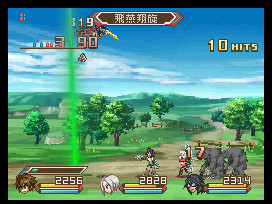
Tales of Hearts is to handhelds as Tales of Graces is to consoles. It has a solid (though not exceptional) story, supported by an absolutely brilliant (in Hearts‘ case, 2D) battle system. The smooth combos and Artes execution never feels old, and working out the best combination of attacks and customisation is a time-consuming joy. The graphical presentation pushes the DS to its limits with great sprite work and vivid environments. Interestingly, the side-story of NPCs Chalcedony and his knights is far more compelling than the plight of the central heroes. An open world (somewhat like Xillia‘s) is a nice little touch, and there’s plenty to see and do. Maybe one day it will be localised.
15) Trace Memory
By Neal Chandran
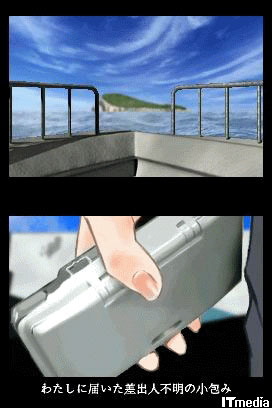
A lot of early DS games can be described as “gimmicky.” Because the platform had features like a touchscreen and a microphone, many developers shoehorned gameplay aspects to make use of these features, often to detrimental effect. Enter Trace Memory; a compelling graphic adventure by Cing that utilized every feature of the DS to magnificent effect. The puzzles making use of the touchscreen, microphone, and even the DS’s sleep mode remain some of the finest usages of the hardware’s features. Couple this creatively intelligent gameplay design with atmospheric visuals, sweet music, and a haunting storyline, and the end result is not only one of the best DS graphic adventures, but one of the best DS games, period.
14) Hotel Dusk: Room 215
By Neal Chandran
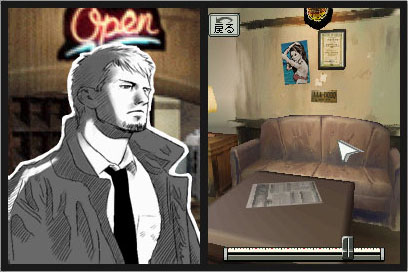
Cing set their own personal benchmark pretty high with their DS debut Trace Memory, so rather than re-create a winning formula, Cing gave players something different in the form of Hotel Dusk: Room 215. The visuals in this visual novel feature pencil drawings of the characters during dialogue scenes (similar to that 1980s music video “Take On Me” by A-Ha) that maintain Cing’s reputation of uniquely original style. The well-told story stars Kyle Hyde, an ex-cop turned salesman whose routine business trip turns out to be anything but routine when he checks into the run-down Hotel Dusk for the night. The hotel’s proprietor and its other guests are not what they seem, and Hyde finds himself inextricably embroiled in their personal lives, which all seem connected to the overarching mystery. With its distinctive style and gameplay featuring interrogative battles of wits, Hotel Dusk: Room 215 is a memorable experience.
13) Ghost Trick: Phantom Detective
By Luna Lee
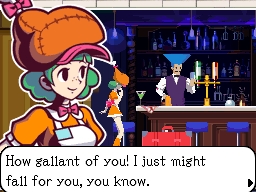
Ever wonder what happens after you die? Apparently, if you’re special enough, you can use Ghost Tricks to manipulate reality in different ways to save others. Amnesiac Sissel, who dies just as game starts, uses his newfound powers to figure out who he is and why he was killed. Characters endear themselves with fluid, idiosyncratic movements as Sissel navigates the murky depths of his lost identity. Ghost Trick‘s refreshing gameplay involving moving and manipulating objects to create a favorable sequence of events is both engaging and challenging. Exuding such innovation and quirky charm, it’s almost a shame that Sissel doesn’t get killed again.
12) Shin Megami Tensei: Strange Journey
By Joshua Bateman
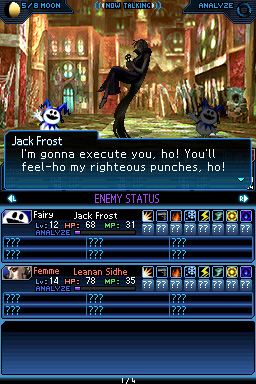
Shin Megami Tensei: Strange Journey has an oppressive atmosphere. The presentation is bleak, cold and depressing. Your goal is to save humanity, but around every corner the horrors of modern man are overtly shoved in your face. Every floor is an exercise in survival, testing your preparation and bringing you face to face with a cavalcade of increasingly powerful demons. Strange Journey paints its world with tones and symbols and asks you to supply your own prejudices, fears and expectations. The end result is deeply personal, providing the emotional context for every choice.
11) Castlevania: Order of Ecclesia
By John Tucker
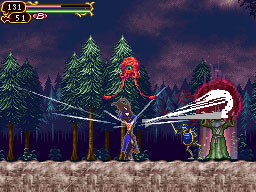
“Symphony of the Night formula” for Castlevania titles has certainly been diminished in the years following the production of several games utilizing it — although some of those games are unquestionably fantastic. Castlevania: Order of Ecclesia, while still operating within some of the constraints of the framework, saw fit to challenge some of the Metroidvania elements that had become lodged in the conception of the series. Featuring an intriguing glyph system in place of magic/souls/equipment, and world design that combined the open, exploration-heavy design of more recent Castlevania adventures with the separate level structure of earlier games in the series, Order of Ecclesia dared to be different, and as a result was one of the most entertaining Dracula hunts on the DS.
10) Chrono Trigger
By Liz Maas
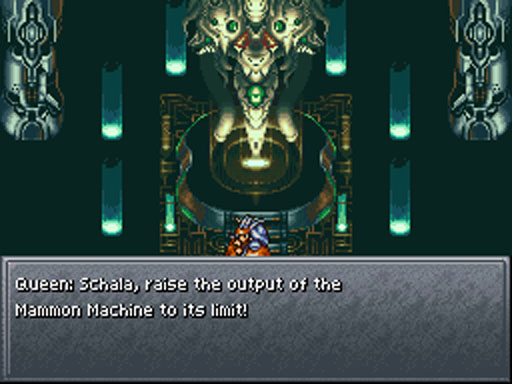
Sure, Chrono Trigger has several ports, but with very good reason. The 1995 SNES classic remains one of the most beloved of a 16-bit RPG generation already filled with many gems. After all, who doesn’t want to take a whimsical journey through time as a spiky redheaded teenager with the oddest group of friends… several times? While the Nintendo DS version lacks the anime cutscenes of the PSone, it also does away with the infamous load times and adds in an optional, sizable new dungeon. Additions aside, Chrono Trigger‘s plentiful memorable moments — from being taken to trial in Guardia to finding yourself in the floating palace of Zeal for the first time — remain, for a lack of a better word, timeless.
9) Final Fantasy IV
By Joshua Bateman
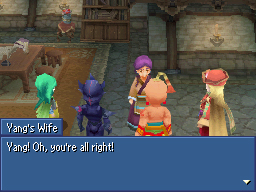
As with most remakes, the appeal of Final Fantasy IV on DS is based on nostalgia, and when it comes to improving the aesthetics with nostalgia in mind, FFIV DS does so masterfully. On the DS hardware, the game brings the world of Final Fantasy IV to life with impressive 3D models that capture the spirit of Amano’s artwork as well as new arrangements for the music. The gameplay is designed with fans in mind too, but it plays around with the concept by redesigning enemy encounters and forcing players to rethink the way they approach familiar situations. Final Fantasy IV DS brings the past and present together to give a classic RPG a modern context and in doing so, transforms it into something great.
8) Professor Layton and the Unwound Future
By Luna Lee
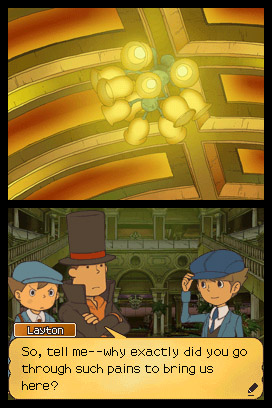
The well-beloved gentleman solves yet another mystery that seems to defy logic. Far from exhausting the series, Professor Layton and the Unwound Future breathes a dynamic yet melancholic spin on the world of puzzle lovers. The 3 new mini-games involving pictures books, a toy car, and a parrot — all equally adorable — can be delightfully devious, and the staple puzzles are just as charming. Character development shines in this entry, complemented by one of the most moving endings in recent years.
7) Pokémon HeartGold & SoulSilver
By Andrew Barker
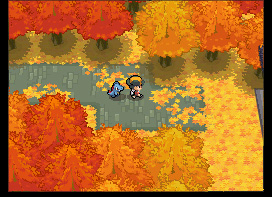
Sure, Pokémon Diamond & Pearl were all right, and Black & White had some cool features, but Nintendo blew us all away with the gorgeous remakes of Pokémon HeartGold & SoulSilver on DS. The vibrant new graphics brought life to Johto like never before, and I, like many others, threw hundreds of hours into exploring it all. There may not have been any new Pokémon in these versions, but other new features such as the Pokéathlon and the PokéWalker accessory brought new depth to the world of Pokémon. Perhaps best of all was that any of the game’s 493 creatures could follow you around on foot. It may not sound like much, but after 300 hours with my Jolteon, I was seriously attached.
6) Radiant Historia
By Neal Chandran
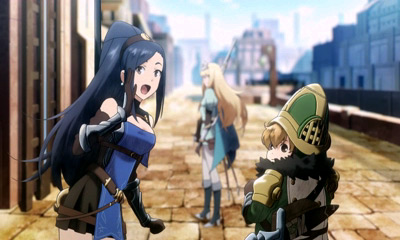
In RPGFan’s 2012 feature spotlighting the best male protagonists, Radiant Historia‘s Stocke was our chosen runner-up in the “born leader” category. That he can stand in a feature whose pantheon includes such beloved heroes as Crono, Hiro, or Commander Shepard speaks volumes. Stocke is a leader who can quickly and confidently instill camaraderie in his troops so they feel like family and work like a well-oiled machine. In much the same way, the various components of Radiant Historia coalesce into something truly special. Classically handsome visuals, an amazing Yoko Shimomura soundtrack, an intriguingly political storyline, and engaging gameplay by themselves are wonderful things, and in Atlus’ capable hands became one of the finest JRPGs of the past decade.
5) Apollo Justice: Ace Attorney
By Luna Lee
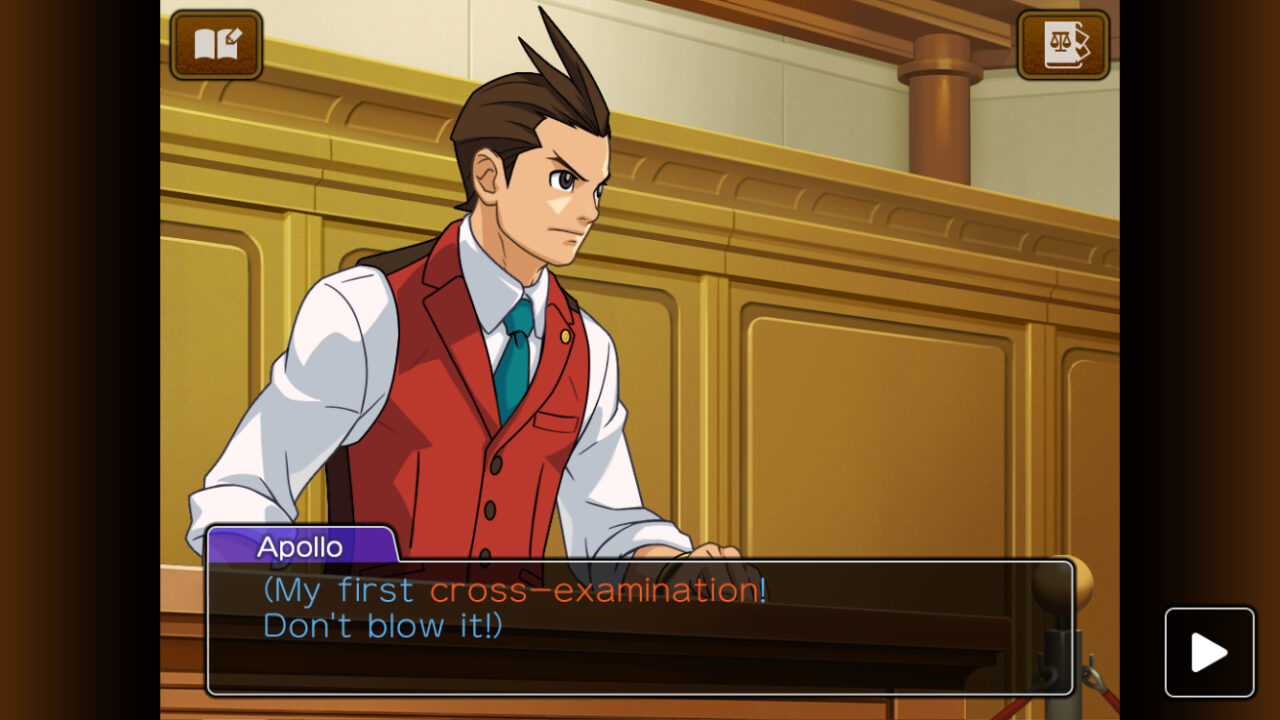
There’s nothing to object to in this successor to the popular Ace Attorney series. Apollo Justice fills Phoenix’s shoes without losing himself in them, while Wright gains a depth befitting his age and experiences. Gameplay doesn’t stray far from its formula, but the addition of Apollo‘s “Perceive System” based on signs of anxiety and nervousness adds a realistic spin to the courtroom drama. The “mini-games” and evidence examination effectively use the touch screen function in a way that was lacking in previous iterations. With a fantastic story and refreshing characters, Apollo Justice is clearly guilty of surpassing Phoenix.
4) Dragon Quest V: Hand of the Heavenly Bride
By Joshua Bateman
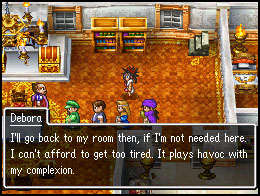
Causing a terrible accident. Taking on your father’s duty. Marrying the love of your life. Watching the world pass you by. Happy reunions and triumphant victories. A series of smaller moments slipping out of memory. In Dragon Quest V: Hand of the Heavenly Bride, Yuji Horii’s talent for creating powerful vignettes is on display for all to see, connecting the stories of one man on an adventure as he learns, loves and lives. All of the Dragon Quest staples make a return: Toriyama, Sugiyama, slimes, the whole package. The gameplay is standard, but it is polished to perfection. Dragon Quest V: Hand of the Heavenly Bride is a landmark game, not because of any particular innovation, but because it tells its tale of adventure perfectly.
3) Shin Megami Tensei: Devil Survivor
By Bob Richardson
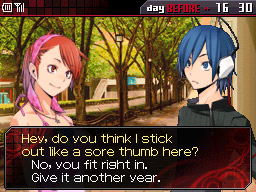
Maybe the key to a fantastic RPG is its setting. Home to the apocalypse, Tokyo offers a sense of realism that grips players and immerses them in a sort of alternate reality. But what’s a realistic setting without authentic characters and dialogue that’s not only well-written, but expertly translated? The Protagonist, Atsuro, and Yuzu serve as representatives to the human condition in a genre typically flooded with stalwart heroes who selflessly aid others. Certainly, that is a choice players can make, but the diverse cast offers different points of view that may ultimately change the fate of the world, depending on how the Protagonist reacts. Shin Megami Tensei: Devil Survivor‘s strong emphasis on player choice facilitates the immersion offered in every other regard. Combine all of this with challenging gameplay that boasts bountiful customization, and SMT: DS is absolutely one of the best RPGs — nay, titles — on the DS.
2) Nine Hours, Nine Persons, Nine Doors
By Stephen Meyerink
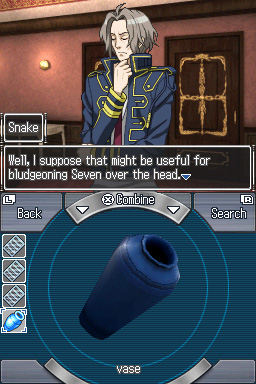
At first you’re resistant. “There’s no way this could be as shocking as people say.” You make your way through mountains of exposition and character introductions, some great puzzle-solving, and lots of pseudoscience. “I like where this is going,” you say to your friends, “but if they end up pulling a cliché out, I’m so done with this game.” And then, just as you’re fully enraptured in the struggles of nine (technically eight) strangers trying to escape a sinking cruise ship, a sickening splorch echoes from your DS’ tiny speakers and the screen fades to black. “What?!” you scream, “that can’t be it! I don’t have any answers!” Your data saves, and you’re informed that you received the “hatchet” ending. And so begins the experience of Nine Hours, Nine Persons, Nine Doors, one of the most wholly engaging games on the Nintendo DS. It is a game that demands patience and more than a little repetition, but as it slowly doles out answers to your burning questions, you’ll find it harder and harder to put down, until at last you reach the climactic moments of the game. The ultimate revelation is one that will floor many players, and the character development, devious puzzles, and great music will happily carry you along to it.
1) The World Ends With You
By Bob Richardson
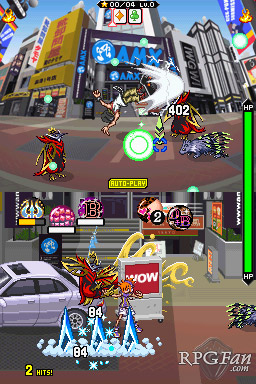
Square Enix’s plunge in quality is nothing new; for several years now, SE’s future has been called into question, with few beacons of hope along the way. The World Ends With You is a shining example of what SE is capable of at their best, which they made this brief return to in 2008. What makes TWEWY arguably the best RPG on the Nintendo DS is its entire package. Amidst some tough competition during the DS’s nearly decade-long tenure, TWEWY boasts attractive artwork, engrossing music, innovative and fast-paced gameplay, an imaginative story with deep existential considerations, and some of the best use of the DS’s dual screen offered on the handheld. And to think: a company that unashamedly resells titles of its former glory from two decades ago has put out one of the best new IPs in the past five years.
We hope you enjoyed our look at what we consider the Top 20 Nintendo DS RPGs! Be sure to let us know what you think, and check out our similar features for the Nintendo 3DS, plus Sony’s PSP and Vita.

